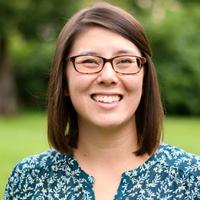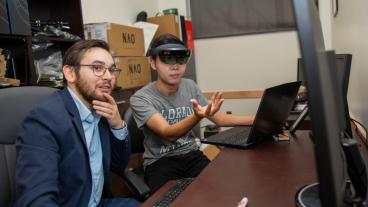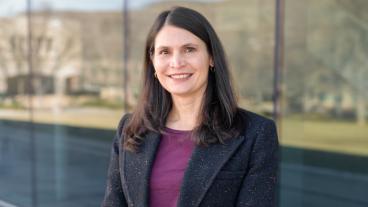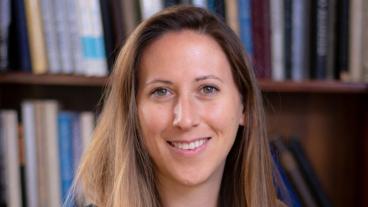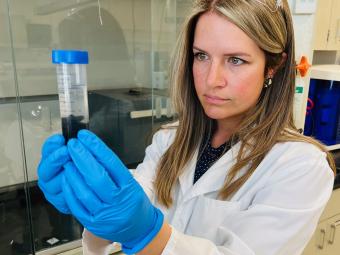
Municipal solid waste sitting in landfills is the third-largest source of human-generated methane emissions in the U.S., according to the data from the U.S. Environmental Protection Agency.
What if that garbage could be transformed into carbon-sequestering biochar and used to replace a portion of the cement — the second-largest industrial source of CO2 emissions — in concrete building materials?
That’s the question that Lori Tunstall hopes to answer through her new research funded by the Gordon and Betty Moore Foundation.
Tunstall, assistant professor of civil and environmental engineering at Colorado School of Mines, has been awarded more than $1 million in funding from the Moore Foundation to research the commercial viability of using municipal solid waste in the biochar that fuels her patent-pending concrete mix, an innovation that could potentially reduce the carbon footprint of both concrete production and landfills.
“If we’re able to solve some of the challenges with using municipal solid waste for biochar, the impact would be enormous," Tunstall said. “The combined emissions from concrete and municipal solid waste are staggering. Fourteen percent of global CO2 emissions is what we'd be addressing — that's equivalent to the entire aviation and passenger vehicle sectors combined.”
Tunstall has been researching the use of biochar in concrete for six years as a way to reduce the carbon footprint of the popular building material, a “hard-to-abate" industry that is currently responsible for 8 percent of all man-made CO2 emissions.
Through her research, she has developed a distinctive jet-black concrete that replaces upwards of 50 percent of the cement in the mix with biochar – the umbrella term for the carbon-negative materials produced from biomass sources – without any sacrifices to the durability, malleability and low cost of regular concrete.
The traditional feedstock for that biochar is woody materials, things like wood chips and agricultural waste. The funding from the Moore Foundation will allow Tunstall and her team to focus on municipal solid waste as an alternate feedstock.
“A lot of people are intimidated by its variability and what kind of product it would form,” she said. “It’s really something that's unexplored, and with that there's a lot of unknowns. We have some assumptions about consistency and our ability to sort the feedstock for what we need. We need to test all those assumptions. This funding will allow us to make some expedited progress and hopefully help us make an impact a lot more quickly.”
With the right sortation technology, Tunstall believes they can get a consistent enough feedstock that they can produce a consistent stock of biochar – and even tune it for the properties they want in the final concrete. Using garbage for biochar in concrete also doesn’t come with the same contamination concerns as agricultural uses.
“It’s a really cool opportunity that we get to pursue this idea,” Tunstall said. “We’re early enough into the research that it would be challenging to do as a company and we’re too far along to do with traditional academic research funding. We’re in this middle ground where it’s hard to get support – we’re super thankful to the Moore Foundation for supporting our work and allowing us to pursue something so high impact.”
ZeroTwelve, the startup that Tunstall founded to bring her biochar concrete to market, is currently in its first funding round and has laboratory trials happening at global ready-mix producer sites.
“We are pleased to support Dr. Tunstall’s innovative approach to incorporating municipal waste into biochar concrete,” said Dr. Adam Jones, Science Program Officer at the Moore Foundation. “The impact of the invention promises to be significant, and we hope this funding will accelerate her team’s progress.”

